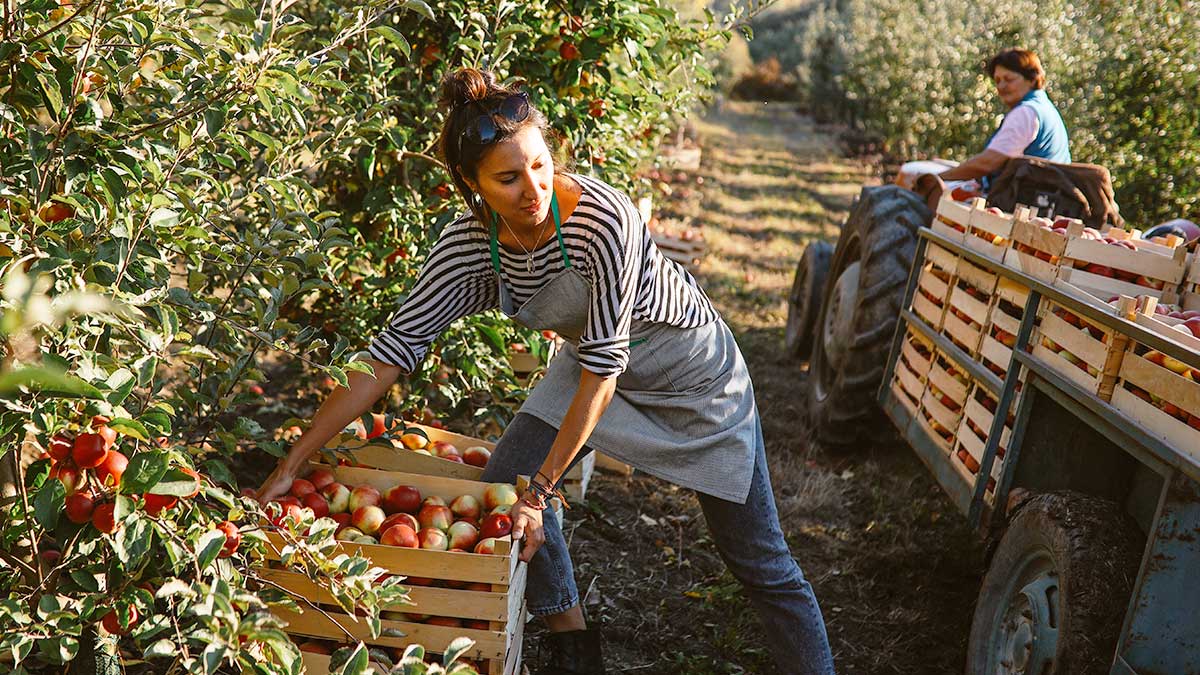Agricultural Biologics: Innovating for a Healthy and Sustainable Future
The agriculture industry is facing challenges from several directions. A growing global population is increasing the need for food and, therefore, greater agricultural output. Concurrently, an increasing number of consumers are demanding foods that are sustainably grown, and the impact of synthetic agrochemicals on the environment continues to raise the bar for getting new synthetics approved for use.
Agrochemicals companies are working to expand their product offerings and develop innovative approaches to help meet these challenges. This is true for large agrochemical companies such as Bayer Crop Science and Syngenta, as well as younger innovators such as Marrone Bio Innovations, Impell Biosciences, Agricen, and others.
Bio-based products are playing an increasingly important role in their efforts, as evidenced by the continued expansion of the biologicals markets. The global biopesticides market alone, for example, was more than $4 billion in 2019 and is projected to exceed $10 billion by 2027.
Here we consider some of the agricultural bio-innovations that are helping us make progress toward a healthy and sustainable future.
Agricultural Biologicals
Agricultural biologicals (or biologics) are crop supporting and protection materials that are based on naturally occurring animals, plants, microorganisms, organic and inorganic materials, and naturally-occurring processes. These biologics are generally grouped into three categories:
- Biopesticides
- Biostimulants
- Biofertilizers
Biopesticides are substances or biological agents that are used to control a wide range of pests—insects, mites, fungi, bacteria, nematodes, invasive plants, and more. There are three general categories of biopesticides.
- Microbial pesticides are substances made by microorganisms such as fungi, viruses, protozoa, and algae. They are toxic to very specific pest species, rather than having a broad-spectrum effect on numerous species.
- Biochemical pesticides are non-toxic substances derived from naturally occurring materials. They work through non-lethal mechanisms, for example, by interrupting plant growth or insect mating, thus helping to minimize pest damage to crops.
- Plant-Incorporated-Protectants (PIPs) are substances made by crops that have been genetically modified to produce substances that are toxic to specific pest species.
Biostimulants are substances that stimulate natural processes to:
- Increase nutrient bioavailability, uptake, and use
- Improve crop tolerance to abiotic stress
- Enhance crop quality and yield
They are a diverse group of biologicals that can be applied to seeds, plants, or soil. The type of biostimulant selected is highly dependent on the physical characteristics of the land where it is to be used.
Biofertilizers contain microorganisms that promote plant growth by improving nutrient acquisition. They are generally categorized into five groups:
- Nitrogen fixers
- Phosphate stabilizers
- Phosphate mobilizers
- Micronutrients
- Plant growth promoting rhizobacteria
These biologicals are not expected to completely replace conventional agrochemicals, but they are proving to be valuable functional components of effective Integrated Pest Management (IPM) programs.
Benefits of Biologicals and IPM
Biologicals offer tangible benefits for farmers and growers, consumers, the environment, and the companies that develop and market the biologicals, such as:
- Biologicals help improve crop yields and quality, meaning growers are able to provide more healthy and affordable food to consumers around the world.
- Biopesticides offer novel modes of action that help farmers manage pest resistance to conventional pesticides and extend their effective lifetime. This, in turn, leads to increased yields and farm profitability.
- Biopesticides tend to pose fewer risks to human and ecological health than conventional pesticides. They also degrade more rapidly, thereby reducing potential exposure to harmful residues by people and the environment.
- The lower residues of biologicals also provide growers with time and cost improvements via shorter intervals before workers can reenter treated fields and crops can be exported.
- The reduced residues can also enhance global regulatory approval and improve marketability of crops treated with biologicals.
- Regulatory agencies tend to require less data, and therefore less time, to register a biological compared to a conventional agrochemical.
In these and other ways, the contributions of biologicals to building sustainable agricultural systems will only continue to grow.
Challenges of Biologicals
There are also challenges with biologicals that are still being addressed, especially with biopesticides. Biologicals tend to provide lower levels of control than conventional pesticides, and the control level may be more variable. They can also take longer to act on the target pest, although their effectiveness may last longer.
The chemical, physical, biological, and performance characteristics of biologicals must be fully understood so that farmers and growers can make sound decisions about which product to use in a particular situation. They also need complete information in order to effectively integrate a biological into an IPM program. R&D teams are charged deciphering these important puzzles.
These challenges and others are hot topics for agricultural innovators. And yet, the advances of the recent past continue to encourage members of the agricultural industry, from farmers to chemists and beyond.
Sources
- CropLife International. 2021. What are Biologicals and Why Are They Important? https://croplife.org/case-study/what-are-biological-and-why-are-they-important/.
- 2021. Biofertilizers. https://www.eubia.org/cms/wiki-biomass/biofertilizers/.
- Fortune Business Insights. 2020. Biopesticides Market. https://www.fortunebusinessinsights.com/industry-reports/biopesticides-market-100073
- 2021. Biostimulants and Crop Responses. https://impellobio.com/blogs/inoculants/biostimulants-and-crop-responses
- Kumar et al. 2021. An Overview of Some Biopesticides and Their Importance in Plant Protection for Commercial Acceptance. https://thescipub.com/abstract/10.3844/ojbsci.2020.66.76
- Marrone Bio Innovations. 2021. Biologicals 101. https://marronebio.com/resources/biologicals-101/

